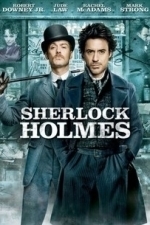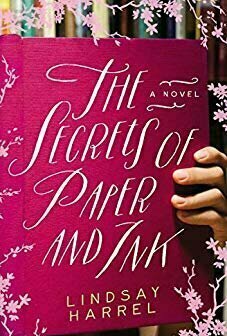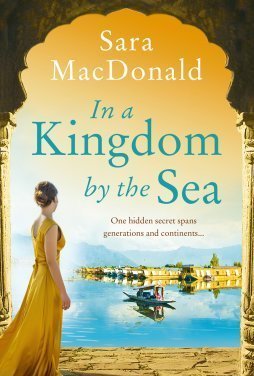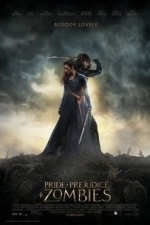Gareth von Kallenbach (980 KP) rated The Wedding Date (2005) in Movies
Aug 14, 2019
Sadly for Kat, her ex is the best man at the wedding, and since he left Kat high and dry with only an engagement ring and no explanation. Desperate to get back at her ex, Kat hires a male escort named Nick (Dermot Mulrony), to pose as her boyfriend.
One would think that with a premise such as this, there would be amble opportunity for laughter, romance, and drama; sadly there is precious little of any of this in the film. Messing tries her best but there is nothing in the material for her to work with. The characters are so weak and one dimensional, that you never really connect with them nor care for their plight.
Mulrony is wasted in the film as he generally seems bored and generates zero chemistry with his co star. He is forced to drift from one scene to another without the benefit of well placed transitions or build up, making the film come across as desperately in search of a direction.
Further complicating the film was an apparent overabundance of editing as scenes concluded only to be followed by scenes that took place much later without the benefit of any transition. As if this matter was not bad enough, references to the past scene and events that were not shown to the audience are constant throughout the film.
While all this could be excused, what can’t be excused is the bizarre lack of humor and romance in the film. It does not take a rocket scientist to see where the film is going, but we never get to see the how and why the characters came to this decision. Nick is a professional escort, and as such, it would stand to reason that he would have hard and fast rules about becoming involved with his clients on a serious basis. Yet, for reasons unknown, he is ready to pledge his undying love in just a couple of days to a person he has spent precious little time with, and seems to have next to zero chemistry with.
Some viewers may also take issue with the notion that a career woman feels the need to parade a man around to show her worth and value, and the fact that she had to hire one as she is seemingly incapable of getting and keeping one on her own.
Somewhere along the way, a good concept for a film went horribly wrong, as The Wedding Date is a clich filled effort that is lacking heart and warmth leaving you wanting more.
Gareth von Kallenbach (980 KP) rated Sherlock Holmes (2009) in Movies
Aug 8, 2019
The people of London are grateful to be free of the terror induced by Lord Blackwood (Mark Strong), but solving the mystery leaves Holmes somewhat despondent and uninterested in solving other mysteries. Most likely because Watson is moving out of their home and office to complete his pending marriage plans. The lack of complexity in the cases Holmes is requested to take leaves him abundant time to sulk in his study and scare the housing staff with his bizarre behavior and inventions.
The monotony of Holmes’s life is abruptly ended when Blackwood summons him shortly before his scheduled execution for his crimes. Blackwood indicates that a dark plot is in the works and though his claims are dismissed by the authorities as the desperate ravings of a madman about to be executed, Holmes begins to think there is more to the case than meets the eye. Things take a bizarre turn when Blackwood appears to rise from the dead and starts a new wave of terror over the city. Pressed into action, Holmes and Watson uncover a series of clues that reveal a diabolic plot that will alter the balance of power in England.
In a race against time, Holmes and Watson must also deal with their unresolved issues regarding Watson’s pending marriage as well as a mysterious, seductive woman from Holmes’s past (Rachel Mc Adams). What follows is a winning combination of comedy, action, mystery, and a touch of romance Ritchie knows he has a strong cast and gives Downey, Law, and Mc Adams ample room to explore their characters yet keeps them within the story.
The plot of the film may be the weakest point and at times its uncertain if it is an action buddy film or a caper picture. It attempts to blend the two but often comes up short, lacking enough action for my taste. The plot may also be confusing to some as it lacks a cohesive structure and seems to be a free roaming entity that exists within a general framework.
Downey and Law work well with one another and Downey gives a strong, clever performance in a role that requires both physical and cerebral dexterity. Mc Adams is good as the love interest in the film but would have benefited from more time to better expand her character which I hope will happen in future films.
While the film may not come across as a traditional American studio film, there is a lot to like about this new Holmes and the new franchise it launches for fans old and new.
MaryAnn (14 KP) rated The Secrets of Paper and Ink in Books
Nov 4, 2019
My Thoughts: This was a very compelling read for me. This is not just a story about one woman finding her healing from an abusive relationship but of three women finding out who they are and finding their true love.
I love the way the author combines the three lives of these women to form a story that the reader will be unable to put down.
There is a quote in the book that really stuck out to me "All we have in life are the choices we make. We must make choices we can live with - and die with if it comes to that". This is so true, life is made up of our choices, some may be good and others may not be so good. In the end, we have to live with our choices and the consequences of them. This is what Emily's father told her once and it was good advice. Emily is my favorite of the three women. She had a desire and she saw it through, she never gave up on her writing. She held to her convictions and had a love for others. She never let defeat get her down or to stop her from doing what she wanted to do.
I really enjoyed this novel, and I believe that other readers will enjoy it as much as I did; I think each reader will take something away with them from this novel. I hope to read more from this author.
Hazel (1853 KP) rated In a Kingdom by the Sea in Books
Jul 31, 2019
Imagine how it must feel to live in a country that is nearly always depicted negatively? How does it feel to have your country's natural beauty and landscape usurped by the violence of a small percentage of people? This is what Gabriella discovers the majority of the population of Pakistan face when she accompanies her husband Mike to Karachi where he works for Pakistan Atlantic Airways.
Gabriella and her sons have been used to Mike disappearing for months at a time on various jobs abroad, however, she is beginning to feel she and her husband are drifting apart. When Mike suggests she come and stay with him in Pakistan, she jumps at the chance, however, instead of strengthing the relationship, Gabriella feels further away than ever. Constantly left behind in a hotel while Mike attends numerous conferences, Gabriella is virtually housebound; it being too dangerous to venture outside. Not only that, she suspects Mike is having an affair and to top it all off, her half-sister Dominique reveals a devastating secret about their childhood in Cornwall.
In a Kingdom by the Sea by Sara MacDonald is essentially a contemporary love story, exploring the woes of a nearly fifty-year-old coming to the end of a long relationship. With underlying elements of mystery, for instance, what happened to Dominique in the early 1970s and what exactly is Mike up to, the novel also explores the hidden truths of a country stereotyped by violence and terrorism.
Gabriella meets dozens of kind and caring people in Pakistan who have her best interests at heart. These people are not dangerous or violent as the media often leads the western world to believe. Whilst some groups of people are content to cause death and destruction, leaving the cities a minefield to navigate, there are plenty more who wish to live peaceful lives. Gabriella is captivated by the beautiful, enchanting landscapes, unlike anything back home in England.
As the story progresses, Gabriella learns more about the lives of women in Pakistan. They are unable to live as they please, having to bow to the commands of their husbands, parents and brothers instead. The more Gabriella speaks to these women, the more she realises that cooped up in the hotel most of the day, she is in a similar situation, under the thumb of her own husband. So, she stops. Thinks. Is this the life she wants?
In a Kingdom by the Sea is a slightly long-winded but eye-opening story. Not everyone will be able to relate to the lives of Pakistani women, however, their plight will resonate with those who relish freedom. Whilst it is difficult to compare Gabriella's life with the women she meets in Karachi, readers will also be rooting for Gabriella's happy-ever-after.
Gareth von Kallenbach (980 KP) rated Pride and Prejudice and Zombies (2016) in Movies
Aug 6, 2019
But the movie got a giggle out of me in the first 5 minutes. And of course it made me gasp not long after. But Walking Dead has trained me well, and it wasn’t too long ago that I watched Hateful Eight, so I think I’m quite desensitized to blood and gore now, and in comparison, PPZ was relatively mild in that regard. It also had enough of the elements of the original story that fighting zombies actually became an entertaining digression. You know – beautiful young ladies, dashing young men, ballroom dancing, budding romance, zombie attack.
“To succeed in polite society, a young woman must be many things. Kind… well-read… and accomplished. But to survive in the world as WE know it, you’ll need… other qualities.” Those qualities include being skilled in the martial arts and weapons training, while wearing a corset –essentially making them Regency era bad-asses.
Because I don’t watch Downton Abbey, the last time I saw Lily James, who plays Elizabeth Bennett, she was brilliantly blond and sweetly keeping her promise to her mother to “have courage and be kind.” as Cinderella. In PPZ, she’s a fierce brunette who doesn’t take too kindly to Fitzwilliam Darcy, played by a sullen and haughty Sam Riley – another Disney alum, last seen as Diaval, Maleficent’s companion raven.
Where the Jane Austen’s Mr. Darcy is won over by Elizbeth’s charm and wit, PPZ’s Darcy is slowly won over by Elizabeth’s aggressive and bold battle skills. Adding the alternate history of how zombies came to be a part of Regency era England hurried the story along, so the romantic developments felt a bit rushed, but Riley’s Darcy was quite believable in his reluctant but growing admiration of Elizabeth.
I was pleasantly surprised by how much I enjoyed this movie, zombies and all. When you can get guys to cheer for some undead’s head getting blown off, and still make the ladies sigh for the romance, you have a pretty perfect date movie. It may very well be my favorite period costume romantic zombie action film.

Ultimate Zmanim
Utilities, Lifestyle and Stickers
App
Ultimate Zmanim is the premiere zmanim app for iOS, now with even more features. iOS Features: -...

Pharmacy2U NHS Prescriptions
Medical and Lifestyle
App
Order and manage your NHS prescriptions with the new and improved Pharmacy2U app We'll take care of...

Ambulance Services: Leadership and Management Perspectives: 2015
Paresh Wankhade and Kevin Mackway-Jones
Book
This volume provides fresh insights and management understanding of the changing role of the...

Lonely Planet Route 66 Road Trips
Lonely Planet, Amy C. Balfour, Karla Zimmerman and Nate Cavalieri
Book
Lonely Planet: The world's leading travel guide publisher Whether exploring your own backyard or...

World's Best Street Food
Book
Travel the world from the comfort of your kitchen! From taco carts and noodle stalls to hawker...




